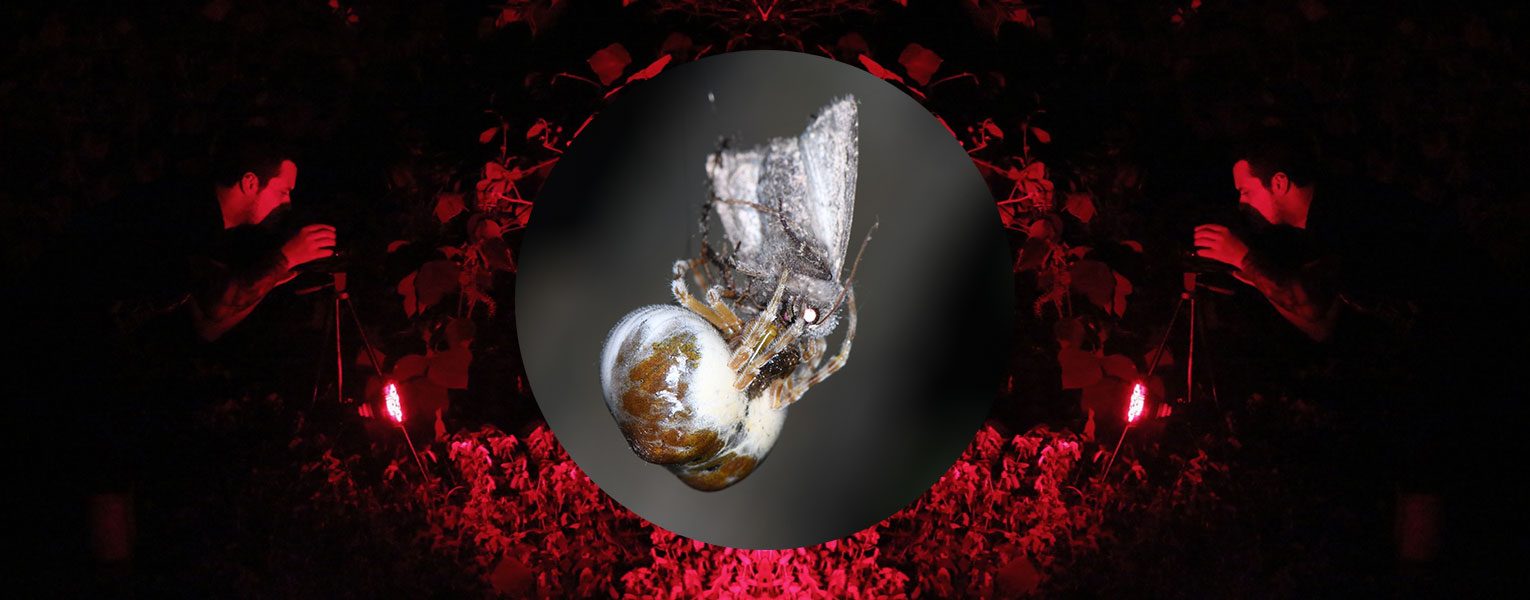11/28/2023
Postdoc Spotlight: Candido Diaz, Ph.D.
Studying the Unique Abilities of Spiders
By Bethany Augliere
To many people, spiders are creepy and scary. But that’s exactly what was alluring for Candido Diaz, Ph.D. He wanted to understand the eight-legged critters and wondered why people didn’t like them, he said.
“I was curious about what caused the fear and then found out they are so weird and interesting,” said Diaz, a postdoctoral fellow working with Ashkaan Fahmipour, Ph.D., assistant professor in the Charles E. Schmidt College of Science. “I think people would be surprised at how many insects spiders eat and how helpful they are, especially in Florida.”
For his postdoc research at FAU, Diaz is working on several projects that use artificial intelligence (AI) to understand spider ecology and behavior, such as filming spiders catching prey and using AI to track their body movements. He hopes this will help him catalog the different capture and hunting techniques of spiders, like those that make webs on the ground versus those that make them in trees or even off your car, he said.
As an ecomechanist, Diaz studies the physics of spiders and their silk in their environments and all the interesting things spiders do to capture prey and eat. Most of the spiders he studies are difficult to find and require walking into the woods, he said. “In perfect science, there are many things that need to be controlled in the lab to understand their individual effect, but because of that control we miss interesting interactions. It means that for most of my work, I hope to go into the field and understand how things work naturally — it is important natural history even when we cannot control all factors, such as temperature, humidity, wind, prey behavior and more,” Diaz said.
To study bolas spiders, Diaz has traveled to South Africa and Japan the most because these species hide in isolated populations. “They do two crazy things,” he said. Bolas spiders attract male moths to them using a special perfume, which makes the male moths get close to them thinking they are a female waiting to mate. Then, instead of making a full spider web, they create a single glue droplet on a string and throw it at the incoming male moths. “They fish the moths out of the air,” Diaz said. “They have taken the spider web and minimized it and decided to focus on a very specific prey. I find it fascinating from a mechanical and evolutionary perspective.”
Diaz said he loves spiders so much that he has a tattoo of a bolas spider and of course, being from New York City, he has always loved spiderman. He credits the superhero for his interest in the critters, too. “I am slowly trying to figure out how to be spiderman,” Diaz joked.
For his undergraduate degree, Diaz earned a bachelor’s degree in physics and astronomy at Vassar College in New York. It was in his senior year he found his true passion, he said. He knew for graduate school he wanted to specialize in the physics of animals. “I realized through the years and all the presentations from other scientists that I wanted to see more about how animals did something that we couldn’t do,” he said. In 2018, he earned a doctorate degree in integrated bioscience from the University of Akron in Ohio, then spent a few years as a postdoc once again at Vassar College.
“Spiders are important to our environment when it comes to pest control,” Diaz said. “They are even important and common in your house by eating ants, mosquitoes, and flies. With the changing climate, the shifting populations of insects and spiders may have an important effect on the future of our ecosystems.”
But, if you have spiders in your home and don’t want to let them hang out, Diaz suggests gently placing them back outside. “They are simple creatures who are very afraid of you.”
If you would like more information, please contact us at dorcommunications@fau.edu.
